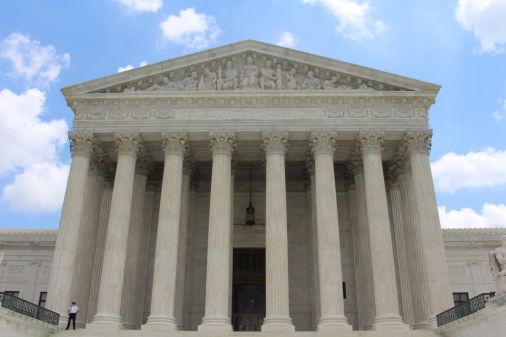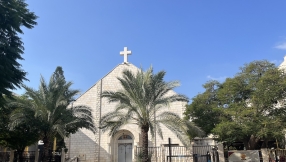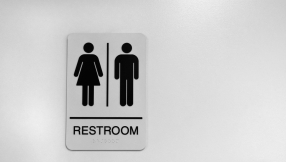
The US Supreme Court heard oral arguments Monday regarding a Texas law that prohibits most abortions after a fetal heartbeat is detected, weighing whether to allow abortion rights advocates to sue the state in federal court.
For around three hours, lawyers who argued for and against Texas Senate Bill 8 were questioned before the nation's high court, with discussions focusing primarily on the unique way in which the legislation is enforced.
Also known as Texas Heartbeat Act, the ban is not enforced through state officials like most laws. Instead, private citizens are given financial incentives to sue abortion providers and anyone who helps a pregnant woman procure an abortion. Successful plaintiffs are awarded at least $10,000.
Both Justice Elena Kagan and Justice Brett Kavanaugh expressed concern, with Kagan wondering if the law would resist the "even broader principle that states are not to nullify federal constitutional rights."
Kavanaugh questioned if the state was exploiting a "loophole" in legal precedent that should be closed to allow those who oppose the law to appeal to federal courts.
Texas Solicitor General Judd Stone defended the legislation. He argued that the legal challenges should remain in state courts for the time and that third parties had a right to sue abortion providers on the basis of being harmed by the procedure.
Justice Clarence Thomas questioned Stone about what "injury" third parties would face that could compel them to seek enforcement of the law.
"One example could be akin to the injury suffered in the tort of outrage, where an individual becomes aware of a noncompliant abortion and they suffer the sort of same extreme emotional harm," said Stone.
"[That is] where a person witnesses something they essentially find to be so extreme and outrageous it causes them extreme moral or psychological harm."
Thomas pushed back.
"Forgive me, but I don't recall an outrage injury," he asked. "What would that be?"
Stone offered an example: "An individual discovers that ... a close friend of theirs who they'd spoken with about pro-life issues and about abortion has chosen instead to have a late-term abortion in violation of S.B. 8, and they were very invested in ... that child's upbringing and the child's coming into being," he said. "To the extent to which there's going to have to be a tighter nexus or what's a sufficient injury, in fact, is going to be something that the Texas courts have to develop in the first instance."
Marc Hearron, senior counsel for the Center for Reproductive Rights, argued that the Texas law makes it so that the "ministerial act of the clerk's docketing" makes clerks an "essential" part of the "machinery that [the state has] created to nullify constitutional rights that have been recognized by this Court."
Justice Amy Coney Barrett stated that the way the law is written does not abortion providers the ability to seek a broader form of relief from the bill in federal court.
"[Y]ou cannot get kind of global relief in the same way that a pre-enforcement challenge ... in federal court gives you relief from the prospect that the statute would be enforced against you," she said.
Texas Alliance for Life Executive Director Joe Pojman said in a statement that he is "grateful for every day the Texas Heartbeat Act remains in effect."
"Regardless of what the courts decide in these cases, the Texas Heartbeat law has saved hundreds or even thousands of unborn babies from the tragedy of abortion," stated Pojman.
"At the same time, hundreds of pro-life pregnancy centers, maternity homes, and adoption agencies continue to help more than 100,000 women in Texas with unplanned pregnancies every year."
Jamie L. Manson, president of Catholics for Choice, said in a statement that her organization rallied outside of the Supreme Court building during the arguments. She claimed that the Texas law violated "Catholic values," even though the Catholic Church has a longstanding opposition to abortion.
"These values – of social justice, human dignity, and liberation – call us to recognize that Texans are harmed every day this anti-abortion law remains in place, especially those who are already suffering from the oppressions of racial and economic injustice," stated Manson.
"It also undermines the fundamental notion of religious freedom that our nation was founded upon. Catholics for Choice is here to proclaim we are pro-choice because of our faith, not in spite of it."
In May, Texas Governor Greg Abbott signed the Texas Heartbeat Act into law. Despite pre-enforcement legal challenges, the Supreme Court allowed the legislation to take effect on September 1. It continues to be challenged in the courts by both pro-choice groups and the Biden administration.
The law is viewed as a challenge to the Supreme Court precedent set in the 1973 decision Roe v. Wade, which bans laws restricting abortion before fetal viability, or the ability of an unborn baby to survive outside the womb, is attained.
Last month US District Judge Robert Pitman issued a preliminary injunction blocking the ban from being enforced. But a three-judge panel of the 5th US Circuit Court of Appeals reversed the decision and granted a per curiam order allowing the law to remain in effect amid legal proceedings.
On December 1, The Supreme Court is scheduled to hear oral arguments in Dobbs v. Jackson Women's Health Organization, which centers on Mississippi's ban on most abortions after 15 weeks. As with the Texas law, the Mississippi law goes against the current precedent set by Roe v. Wade.













